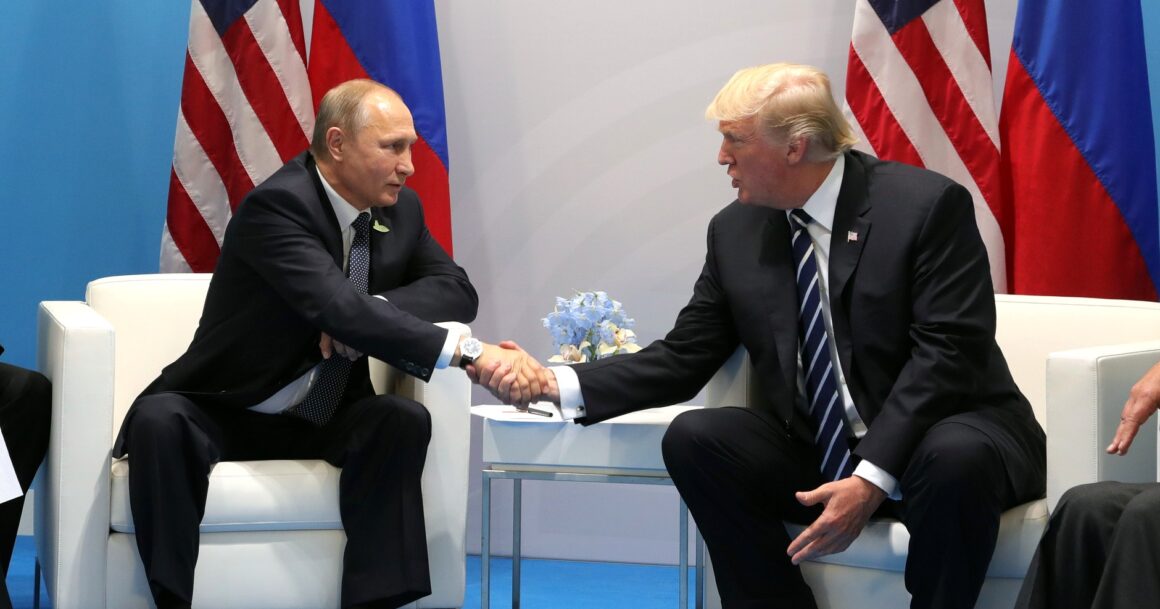

By Martin Suchanek
The bilateral Russia-US talks for a 30 day-ceasefire are in a crisis. Donald Trump says he is ‘very angry’ and ‘pissed off’ with Putin for attacking Zelensky’s credibility and demanding a UN administration replace him as a condition for a ceasefire. Trump, in turn, is threatening to impose a 50% tariff on countries buying Russian oil unless there is a rapid ceasefire.
This is a bizarre turnaround, even for Trump, given his own public humiliation of the Ukrainian president in the Oval Office on 28 February, and his own challenging of the Zelensky’s legitimacy, even calling him a dictator. Now, after over a month of egregious fawning on Putin, and conceding him most of his war aims, the touchy Trump plainly realises he has been played for a fool, something Zelensky has been diplomatically warning him about.
The talks which began on 23 March pit the diplomatic greenhorn and businessman friend of Trump, Steve Witkoff, against Sergei Beseda, former head of the FSB spy agency’s fifth directorate. With Ukraine excluded from the talks, the US has been shuttling between them and the Russians. So far this has achieved only a very limited agreement—not to attack energy infrastructure or maritime traffic in the Black Sea. But Russia has continued and even intensified its attacks on Ukrainian civilians.
Putin has perhaps been encouraged to push further, given Trump has effectively conceded Russia’s territorial gains plus no NATO membership for Ukraine (though unspecified ‘security guarantees’ were promised) and the lifting of sanctions against Russia. Added to this is Trump’s proposal of a division of Ukraine’s natural resources between the USA, Russia and Western Europe. A true ‘robbers’ bargain’ with Ukraine as the victim.
This sort of deal for ending the war has been touted by Vice President JD Vance and is included in the Heritage Foundation’s Project 2025, the blueprint for Trump and Elon Musk’s ‘move quickly and break things’ strategy. Amongst the possible breakages could be Ukraine and even NATO, which are seen as devouring the resources needed to confront the main enemy, China.
Even if all this does not yet constitute official government policy and if the spat between the two ‘strong men’ can be patched up or turns out to be part of the ‘transactional’ (i.e. blackmailing) strategy on both sides, this does mark a significant change in the relationship between these major imperialist powers. First, the US is recognising Russia as a great power whose ‘security interests’, i.e. control over its claimed (semi-)colonial sphere of influence, must be fully recognised. In this way, the US hopes to loosen Russia’s close political and economic ties to China; probably a fond hope for the MAGA novices.
A more far reaching change is in the relationship between the USA and the EU, meaning above all its leading imperialist powers. The agreement embodies not only a deep shock, but also a rupture of the previous ‘transatlantic partnership’, not so much because of its content, but because of the way it was negotiated, denying any substantial say not only for Ukraine, but also for the EU. The USA and the EU powers are no longer allies, but open rivals.
Whether the European imperialist states, including Britain, will ultimately subordinate themselves completely to the USA, is by no means a foregone conclusion. At the moment, they are talking of regroupment, forming a military alliance (still within Nato since the US controls all the coordinating powers of the alliance) and even trying to remodel a core Europe, organised around Germany and France, into a bloc capable of acting as a world power.
Whatever the prospects for a ceasefire, let alone a ‘long-term peace’ acceptable to Putin, a lasting settlement in Europe looks unlikely for two reasons. Firstly, it would mean intensified national oppression in Ukraine. Part of Ukraine would become a Russian colony, while the greater part would be sold off economically to the giant corporations from the USA and Western Europe. Secondly, whether as a deployment area for European peacekeepers or as a buffer zone, it would in any case be at the centre of a massive build-up of arms between Russia and Western Europe, along a front thousands of kilometres long.
The current peace negotiations also make clear that the war over Ukraine, despite the context of a much larger global conflict, was never predominantly a proxy war but a justified defence of the country’s national sovereignty, supportable by socialists. Certainly, Zelensky and the Ukrainian bourgeoisie led the country’s workers and peasants into subordinating their interests to those of their treacherous Western allies. Today, for Zelensky, this includes selling rare earths and other ores (titanium) to the USA.
Within Ukraine, socialists need to fight against this sell-out of the country and for the expropriation of all the privatised and sold-off companies, for the cancellation of the debt and for reconstruction under workers’ control. All anti-worker and anti-union laws must be repealed. In short, the working class must act as an independent force, build a new revolutionary party and give its support to neither Zelensky nor any replacement.